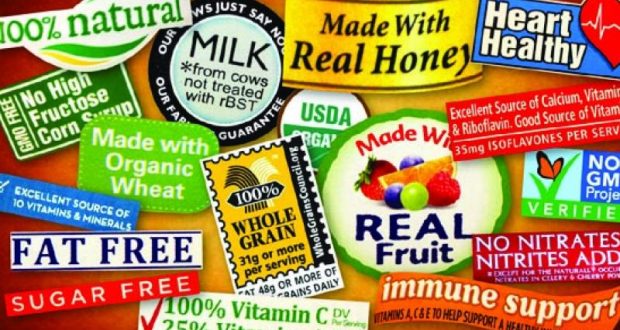TBB BUREAU
NEW DELHI/BHUBANESWAR, OCT 16, 2021
With childhood obesity becoming a significant public health concern and posing the risk of developing non-communicable diseases (NCDs) later in life, concerned Indian parents want the Government to adopt stringent measures to regulate processed food, as its regular use leads to obesity.
On the occasion of the World Food Day (on October 16), a household online survey shows that a large number of people support mandatory FOPL (Front-of-pack labelling) warning labels on packaged foods.
A nationwide survey by the Institute of Governance, Policies and Politics (IGPP) reveals that nearly 80 percent parents feel that it should be mandatory for the food producers to prominently display on the packet the content of sugar, fat and salt in packaged foods.

One of the significant findings of the survey is the growing awareness among parents about the health hazards of sugar, salt and fat when consumed in excess; and of ultra processed foods which are significant contributors to the rising prevalence of non-communicable diseases (NCDs) like diabetes, high blood sugar and heart diseases.
According to the Global Burden of Diseases Report 2017, cardiovascular disease (CVD) kills 1.7 million Indians every year. Moreover, the premature mortality (years of life lost because of CVD) in India increased by 59 per cent to 37 million in 2010 from 23.2 million in 1990. And yet, the consumption level of sugar, salt and unsaturated fat is increasing in our everyday food choices controlled by the multibillion dollar processed food industry.
The key findings of the survey titled “People’s Awareness about the Relationship between Food Habits/Ingredients and NCDs/CVDs”, say that 80 percent parents feel it should be mandatory for the food producers to prominently display content of sugar, fat and salt in packaged food products through simple and clear labels.
Almost 60 percent of them expressed concern over the growing presence of packaged junk foods in the markets; and its aggressive, unregulated marketing.
According to the survey report, 77 percent people felt that information related to harmful ingredients like salt, sugar and fat, if made mandatory by the government and displayed in a simple, easy-to-interpret manner, would steer them towards making healthier choices. Over 62 percent showed readiness to permanently give up the habit of eating HFSS (high fat, salt and sugar) laden food.

The survey also indicated that parents were keen for mandatory warning labels on the front of pack on all foods so that it would help them explain to their children why they should not buy HFSS food.
“Consumption of higher amount of unhealthy fat, sugar and salt is harmful to health. Majority of packaged foods contain extra calories – also known as zero calories because they lack nutritional value, vitamin and natural fiber – which lead to weight gain and high blood sugar. India is already facing the devastating impact of an unhealthy diet,” said Dr. Madhukar Mittal, Additional Professor, Department Of Endocrinology, AIIMS, Jodhpur.
“If this eating pattern continues, India will soon be the capital of diabetes and obesity,” warned Dr. Mittal.
Echoing similar concerns, Dr. Vandana Prasad, Community Paediatrician and member of Nutrition Advocacy in Public Interest (NAPi) said, “The report of this study is most welcome as India struggles with an increasing burden of childhood obesity resulting in a very high prevalence of life threatening NCDs in adult life. Though this study had been done with an urban middle class sample, we see the penetration of junk food to the remotest villages of the country without any attempts at regulation or public information. Most attempts to provide FOPL (Front-of-pack labelling) are being diluted by Big Food companies at the level of Food Safety and Standard Authority of India (FSSAI) that does not seem to bother with preventing conflict of interest in favour of the health of the general public. Clearly the consumers will have to force adherence to WHO standards where FOPL is concerned.”
“The online survey results clearly reflect the growing concern among parents about easy availability of HFSS filled packaged foods causing NCDs also known as ‘Silent Killers’. In fact, an easily understandable, readable and acceptable label may help people make healthy food purchases,” said Manish Tiwari, Director, IGPP.
“The top food regulatory body, FSSAI, and the policymakers should take a cue from such evidence to enact a strong legislation to implement FOPL policies as a viable strategy to reduce obesity and NCDs risk,” he added.
On its part, the World Heart Federation (WHF), for quite a long time, has been advocating the FOPL Policy to create an atmosphere that encourages consumers to make better, informed, and healthier food choices for themselves and their family members. The survey was primarily concentrated around the urban middle-class nuclear families covering a sample pool of 237 parents. It was envisaged to have an idea about the entrenchment of packaged food items in Indian markets and to test if people would find warning labels on the front of pack useful in guiding them towards healthier food choices. As India prepares to adopt an FOPL regulation, this survey provides a timely evaluation of people’s readiness for a safer food regime.
 The Business Bytes
The Business Bytes
